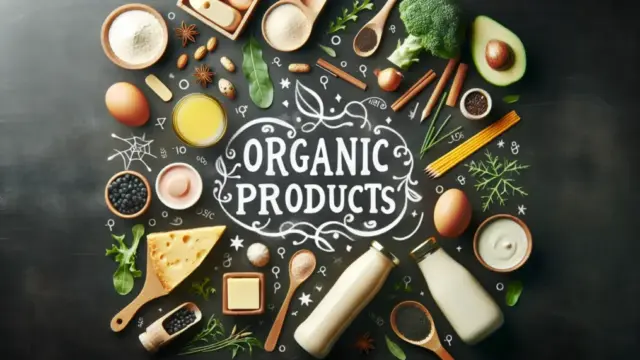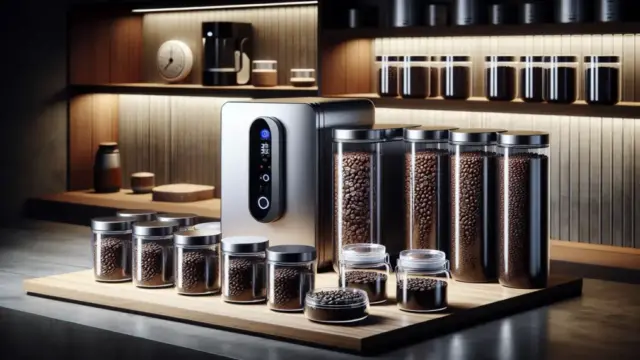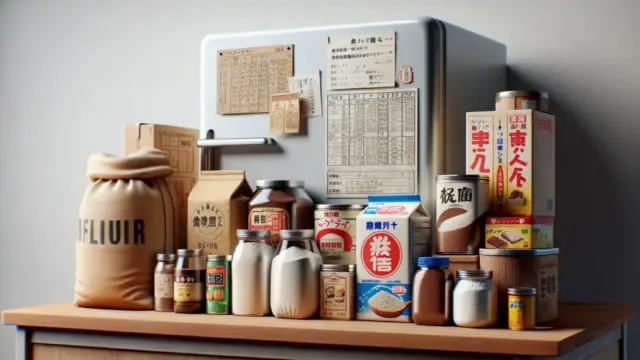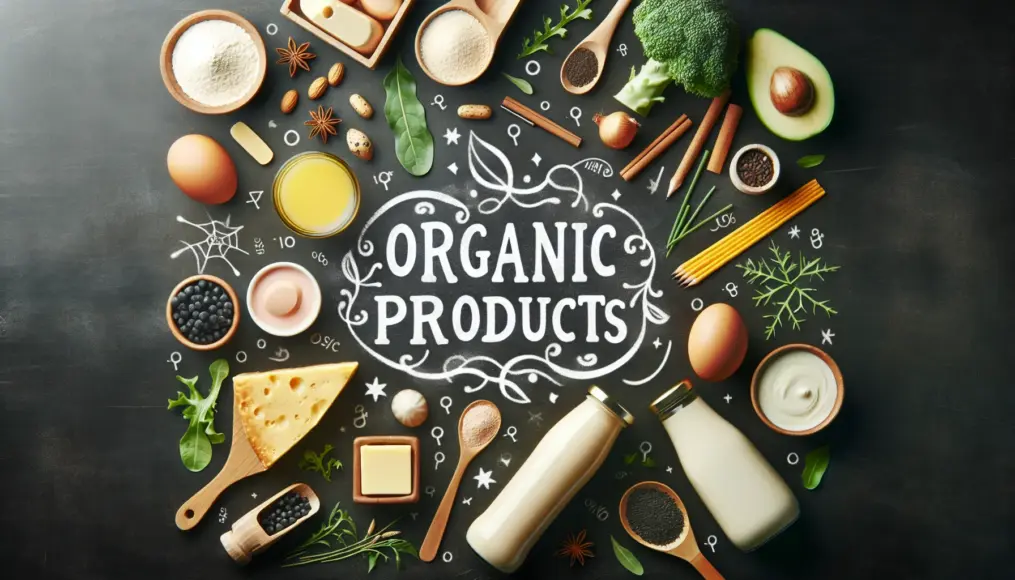Decaf and organic coffee have been gaining plenty of attention lately. For those looking to enjoy their daily cup while keeping health in mind, these options are perfect. They are especially appealing for individuals who want to cut back on caffeine or are committed to organic farming practices. In this article, we’ll dive into the allure of decaf coffee and provide tips on how to choose organic coffee, so stay tuned!
We’ll start by laying down the basics of decaf coffee and its health benefits, and we’ll also introduce some recommended organic brands. Additionally, we’ll discuss the differences between decaf and organic coffee, offering insights on how to seamlessly incorporate them into your lifestyle. Rest assured, your coffee experience is about to get even richer!
- Understanding the basics of decaf coffee and its health effects
- How to choose organic coffee and our recommended brands
- Recognizing the differences between decaf and organic for a lifestyle that fits you
The Allure of Decaf Coffee
Recently, decaf coffee has been gaining attention. For those who are mindful of caffeine or focused on health, decaf is an appealing option. Decaf, which is coffee with most of the caffeine removed, still delivers a flavor and aroma comparable to regular coffee, making it enjoyable even for coffee enthusiasts. In this section, we’ll delve into the basics of decaf coffee and explore its health benefits.
Understanding Decaf Coffee
Decaf coffee is made by removing caffeine from regular coffee beans. There are various methods for caffeine extraction, with water and solvents being the most common. This process reduces the caffeine content by about 97%. Each variety of decaf coffee can offer different taste profiles depending on the roast and the type of beans, giving you the fun of discovering the one that suits your palate.
You can safely enjoy decaf coffee at night, and it’s a great option for those sensitive to caffeine. Recently, organic decaf options have also been on the rise, appealing to health-conscious consumers.
- Decaf is coffee with most of the caffeine removed
- Several methods are used for caffeine extraction
- Organic decaf is gaining popularity
Health Benefits of Decaf Coffee
Since decaf coffee contains no caffeine, it has the advantage of being heart-friendly. It’s an excellent choice for those looking to cut back on caffeine or reduce anxiety. Additionally, decaf is rich in antioxidants, contributing to overall health. You can enjoy the rich aroma and taste of coffee while being mindful of your health, which is one of the key attractions of decaf.
Moreover, decaf coffee is gentle on the digestive system, making it suitable for those who want to ease the burden on their stomachs. It’s a delightful way to savor coffee while making healthy choices.
- Heart-friendly due to the absence of caffeine
- Rich in antioxidants, supporting overall health
- Gentle on digestion, easing stomach discomfort
How to Choose Organic Coffee
For health-conscious individuals, organic coffee is an incredibly appealing choice. Coffee beans grown without the use of pesticides not only provide a safe drinking experience but are also kind to the environment. However, with so many options available, it can be confusing to know how to choose the right one. In this section, we’ll delve into what organic certification means and recommend some trustworthy organic brands, so you can make an informed decision.
Understanding Organic Certification
Organic certification serves as proof that a product has been cultivated without chemical fertilizers or pesticides. To receive this certification, farms must meet strict standards that assess various factors, including soil quality, cultivation methods, and post-harvest processing. Therefore, choosing coffee with organic certification ensures that you’re selecting a product of guaranteed quality.
When selecting organic coffee, it’s essential to check for this certification mark. This is especially helpful for newcomers trying organic coffee for the first time, as it can guide you toward reliable choices.
- Organic certification indicates pesticide-free cultivation
- Only coffee that meets strict standards is certified
- Checking the certification mark is crucial
Recommended Organic Brands
There are many brands of organic coffee available, but here are a few that stand out for their popularity. First up is Starbucks’ organic coffee. They use organic beans to support sustainable farming practices, resulting in a rich flavor that coffee lovers appreciate.
Another great option is Café de Luna. This brand is dedicated to fair trade, ensuring that farmers receive fair prices for their crops, which helps create a better environment for everyone involved. The coffee itself is delightful, and every sip feels like a step towards a more positive impact.
By choosing these brands, you can enjoy organic coffee with peace of mind. There’s also something exciting about discovering which one suits your taste best, so don’t hesitate to explore different options!
- Starbucks organic coffee boasts rich flavor
- Café de Luna focuses on fair trade practices
- The joy of finding your favorite brand
Decaf vs. Organic: Which One Should You Choose?
Decaf coffee and organic coffee are both popular choices for health-conscious consumers, each with its own unique features and benefits. The decision on which to choose largely depends on your lifestyle and personal preferences. In this section, we’ll explore the characteristics and advantages of both decaf and organic coffee to help you find the perfect brew for your needs.
Unique Features and Benefits
First, let’s talk about the appeal of decaf coffee. Its main draw is that it contains almost no caffeine, which means you can enjoy a cup at night without worrying about it keeping you awake. For those sensitive to caffeine or who want to avoid it altogether, decaf is a fantastic option. Plus, you can still savor rich flavors and aromas, making it a great choice for coffee lovers seeking an authentic taste experience.
On the other hand, organic coffee is made from beans that are grown without the use of pesticides or chemical fertilizers. This not only makes it environmentally friendly but also kinder to your body. Organic coffee typically boasts higher nutritional value and a robust flavor, allowing you to enjoy the true essence of coffee. If you’re someone who cares about health and the environment, organic coffee might be the perfect fit for you.
- Decaf contains almost no caffeine
- Organic is made from pesticide-free beans
- Each option has its own set of benefits
Choosing Based on Your Lifestyle
Whether you opt for decaf or organic coffee really depends on your lifestyle. For instance, if you want to unwind in the evening or are trying to cut back on caffeine, decaf coffee is the way to go. Conversely, if you’re keen on making health-conscious and environmentally friendly choices, organic coffee is an excellent alternative.
You could also enjoy the best of both worlds! Consuming caffeinated coffee during the day and switching to decaf at night allows you to fully embrace your coffee-loving lifestyle. By adjusting your choice based on your mood and well-being, you can enhance your coffee experience and make the most of your daily brew.

If you found this article interesting, you might also enjoy our piece on “How to Enjoy Decaf Coffee Even More: Brewing Methods and Recommended Beans”. This guide dives into the charms of decaf and offers detailed insights on brewing methods for a delightful cup, so be sure to check it out!
- Decaf is ideal for relaxing at night
- Organic is recommended for health and environmental consciousness
- Enjoying both can enrich your coffee life
Coffee Culture and the Role of Decaf and Organic Options
Coffee is a beloved beverage around the world, but in recent years, decaf and organic coffee have been gaining significant popularity. These options are often chosen for their health and environmental benefits, securing a special place within coffee culture. In this section, we’ll explore the global landscape of decaf coffee culture and the rising demand for organic coffee.
Global Decaf Culture
Decaf coffee is an essential choice, especially for those who are mindful of their caffeine intake. In places like the United States and Europe, decaf has become a commonly offered beverage. Many cafes provide decaf options, allowing those looking to cut back on caffeine to enjoy their coffee with peace of mind.
The quality of decaf coffee has also improved significantly, with a growing number of flavorful and aromatic products available. As a result, the number of people who enjoy decaf is on the rise, establishing it as a legitimate style within the coffee culture.
- Decaf is commonly enjoyed in the U.S. and Europe
- Many cafes offer decaf options
- Improved quality of decaf has led to a rise in flavorful products
The Rise of Organic Coffee
Organic coffee is experiencing a surge in popularity, driven by increasing environmental awareness. With more consumers becoming sensitive to health and environmental issues, the demand for organic coffee is on the rise. Many brands are incorporating organic options into their offerings, expanding choices for consumers.
As organic coffee becomes more mainstream, support for farmers and local communities has also increased. When paired with fair trade practices, sustainable farming is promoted, allowing consumers to make choices they can feel good about. Thus, organic coffee has truly become an environmentally friendly option that is an integral part of coffee culture.
- Organic coffee is popular among environmentally conscious consumers
- Many brands are now offering organic coffee
- Pairing with fair trade promotes sustainable agriculture
Conclusion
Decaf and organic coffee are fantastic choices that prioritize both health and the environment. Decaf is perfect for those who want to enjoy coffee without worrying about caffeine, making it a great option for evening relaxation. On the other hand, organic coffee is grown without pesticides, earning the support of many for being gentle on both our bodies and the planet. By understanding the unique qualities of each, you can select the coffee that best fits your lifestyle and enhance your overall coffee experience.
Ultimately, decaf and organic coffee can add a splash of color to your daily routine. We encourage you to find that perfect cup that suits you. If you have any thoughts or favorite coffee recommendations, we’d love to hear them in the comments!
- Enjoy decaf without worrying about caffeine
- Organic coffee is kind to both health and the environment
- Choosing coffee that fits your lifestyle is essential
To enrich your coffee journey, give decaf and organic coffee a try! We look forward to your comments.
















































Comment